Welcome back to WHR Radio Where You Decide! 
We are pleased to announce our next special guest host, the very talented Mr. Bill Butt who will join us Sunday April 8, 2012 6 PM Pacific, 9 PM Eastern time to discuss safety while traveling in an exciting interview about his career experience as an actor!
Supporters of background performer and character actor Bill Butt know him from a variety of hit television shows including MGM Studios famed movie and television franchise Stargate!
If you had the money, how would you spend your vacation? Would you take a cruise?
 Maybe you would travel to an exotic destination. But how would you know that a particular area of the world is safe; especially if it is off the beaten track.
Maybe you would travel to an exotic destination. But how would you know that a particular area of the world is safe; especially if it is off the beaten track.
An exotic destination can often mean travel to a part of the world that may not be as safe as most westerns have come to expect. Even Mexico, with its drug wars is no longer as safe for travelers as it once was.
Except in the Fringe alternate universe where the Twin Towers are still standing, after the terrorist attacks on the U.S of September 11, 2001, greater security was implemented in airports, creating, for a time, a greater sense of security for people taking flights to different parts of the U.S and the world.
 However, eleven years later after the disaster at the World Trade Center Twin Towers attacked by Osama Bin Laden and his gang of evil terrorists, the same travelers now find the security measures tedious and intimidating.
However, eleven years later after the disaster at the World Trade Center Twin Towers attacked by Osama Bin Laden and his gang of evil terrorists, the same travelers now find the security measures tedious and intimidating.
Some have begun wondering if the security measures are actually just a means to make travelers feel safer while actually not providing much safety at all.
This does not remove the threat or risk to safety within airports and abroad. In order to lessen fears and ensure safe travel, Jerald Thornton, a Marist Abroad Program coordinator, said that in preparation for his students’ departure he makes understanding the importance of acting in a safe manner a priority.
“Travelers need to remember that security is taken very seriously at airports, and any act, even if unintentional, that is perceived as a threat will be dealt with quickly and severely,” he said. “Examples of things travelers do that puts them at more risk is not watching your luggage, losing a passport, [or] being the victim of pick-pocketing. All travelers, including students, need to be aware of their surroundings and not let their guard down.”
 While some individuals may disagree with Thornton’s comment about current airport security and who, ultimately, is actually protected, complacency is no longer an acceptable option while traveling.
While some individuals may disagree with Thornton’s comment about current airport security and who, ultimately, is actually protected, complacency is no longer an acceptable option while traveling.
A further concern is from possible terrorist attacks in areas that were previously considered safe. It seems that political groups have taken to attacking westerners to bring attention to whatever cause they champion.
Ultimately for each of us, it is up to travelers to determine if an area is safe for travel by contacting  their governments agencies and those in your home country.
their governments agencies and those in your home country.
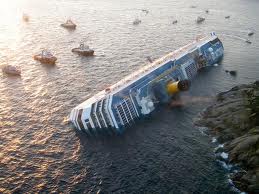 In the United States, the U.S State Department can provide information regarding travel abroad.
In the United States, the U.S State Department can provide information regarding travel abroad.
In Canada citizens should contact the Department of Foreign Affairs and Trade. Similar facilities are available in the United Kingdom and Australia.
No matter where you live, your native country can provide useful and helpful information for safe traveling abroad.
What can you do to keep yourself, and your family and friends safe while abroad?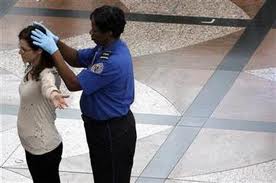
Be aware of those around you. Crowded international airports are terrific for pickpockets, as jet-lagged, disoriented travelers are easy marks. Keep a close eye on your belongings, and don’t allow yourself to be distracted if someone “accidentally” bumps into you or drops something in front of you.
Prevent theft of carry-on items. When going through airport security, make sure that the metal detector is clear and ready for you to enter before you send your carry-on items through X-ray.
Hotel Safety
Avoid the first floor as ground floor windows and sliding glass doors are much more accessible than those above. You may also want to avoid booking a room on a floor higher than the fourth floor since outside fire equipment cannot reach higher. Anyone in a hotel on a floor higher than the fourth floor during a real fire is pretty much on their own.
When checking in, be discreet when disclosing personal information. If the hotel clerk gives you your room number verbally, ask for a different room. If you are a solo woman traveler, check in as Mr. and Mrs.
Don’t leave valuables in your room. If you must travel with valuables, secure them in the hotel safe.
Keep the door locked when in your room, and never open the door to unexpected visitors. Use a door stop alarm to alert you to unwanted intruders, and check with the front desk to verify the identity of maintenance personnel before you let them in.
When you are out for the day, keep the room key with you rather than turning it in at the front desk.
Park in well–lit areas, and never leave any visible belongings in your car.

Staying Safe
Don’t draw attention to yourself with expensive clothing or jewelry, as this makes you an attractive target.
Don’t leave your camera hanging around your neck. When not in use tuck it in a pocket or purse.
Foil cut-and-run thieves with a daybag or purse equipped with braided steel cable in the straps and steel mesh in the panels. Wear the strap across your body rather than over your shoulder to prevent snatching.
Don’t show your money. Pickpockets observe travelers when shopping, and then later know exactly which pocket to pick. Use a money belt or security wallet to keep your valuables out of sight and close to your body, and tuck a little “mad money” in a front pocket for the day’s expenses.
If you must use a wallet, carry it in the front pocket, and put a rubber band around it, or use a chain to attach it to your clothing. Divide up your funds so that if your wallet is taken, you have a back up supply (in your socks or elsewhere) to get you back on track.
Use a personal alarm if you plan to sightsee at night. The ear-piercing shriek will frighten would-be thieves and attract the attention of bystanders.
Don’t accept food or drinks from strangers. They may contain drugs that will knock you out, creating opportunity for a thorough robbery or worse.
Do not accept packages from strangers or new found friends: Even if you are offered money to carry a package back to your 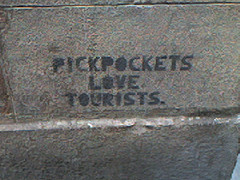 home country, do not take the risk. If you are caught with drugs, especially in foreign countries, you may be jailed in squalid conditions for months or even years without a trial.
home country, do not take the risk. If you are caught with drugs, especially in foreign countries, you may be jailed in squalid conditions for months or even years without a trial.
Be cautious of the water: Despite assurances from local hotels, unless you know for certain that a particular resort or area is safe, buy bottled water.
Check with travel agents or government web sites for required Immunization: Many tropical destinations still deal with viral, bacterial and parasitical diseases that no longer exist in North America.
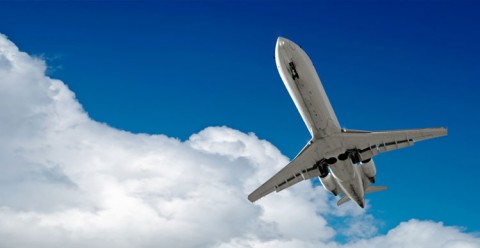
Two major things to consider while traveling abroad are travel insurance and vaccinations against infectious disease, including:
Hepatitis A & Hepatitis B vaccine and/or vaccinations
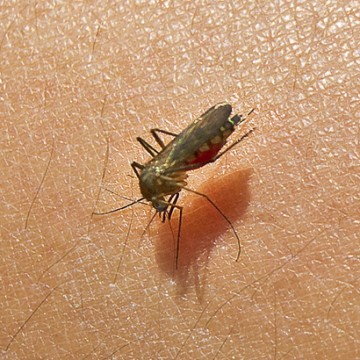
Japanese encephalitis vaccine and/or vaccinations
Meningococcal Meningitis vaccine and/or vaccinations
Meningococcal Conjugate C vaccine and/or vaccinations
Rabies, Tetanus vaccine and/or vaccinations
Typhoid, Yellow Fever, Diphtheria vaccine and/or vaccinations
Measles, Mumps, Rubella vaccine and/or vaccinations
Polio vaccine and/or vaccinations, TMVC
Traveller’s Diarrhea vaccine
Cholera vaccines
Malaria prescriptions
Do not expect to receive medical care in a foreign country that meets the same standards you have become used to in your own country. It is also best to ensure that you have sufficient medical insurance to cover possible medical bills.
Appreciating cultural and legal differences can help you avoid potentially embarrassing or difficult situations.
It is best to:
Get a good guidebook and find out about local laws, customs and culture.
Take a phrase book.
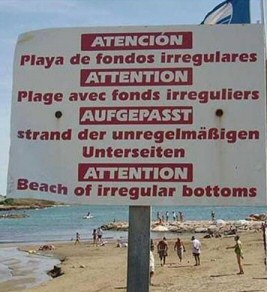
Be discreet about your views on cultural differences and behave and dress appropriately, particularly when visiting religious sites, markets and rural communities.
Not offend Islamic behaviour relating to sexual relations, alcohol and drugs – in some countries, it’s illegal to drink and import alcohol into the country.
Always ask an individual’s permission before you take a photograph – in some cultures, taking a woman’s photograph can cause great offence.
Not haggle too aggressively, but with humour and not for too long – it is important to remember that the discount could be a few dollars for you, but a significant amount for a seller.
Respect local customs and dress codes, think about what you wear and how you fit in.
Be cautious – behaviour that would be regarded as harmless at home can lead to serious trouble.
Ultimately, keeping yourself and your family and friends safe is up to you. Often, if you get into trouble in a foreign country, at least initially, you are on your own. If possible, get in touch with your government’s consulate or Embassy. The best way to avoid difficulties, of course, is to do your homework before you leave on vacation.
 Thanks to Kenn for staging the video in this post for me, and thanks to you for stopping by WormholeRiders News Agency! We hope to see you all for our interview: Traveling With B.A.G this Sunday 6 PM PST 9 PM EST
Thanks to Kenn for staging the video in this post for me, and thanks to you for stopping by WormholeRiders News Agency! We hope to see you all for our interview: Traveling With B.A.G this Sunday 6 PM PST 9 PM EST
Please feel free to leave a comment here, click an icon below to share this interview, or you can visit and follow me on Twitter by clicking on my avatar to the right.
Regards,
Thank you.
ArcticGoddess1 (Patricia)
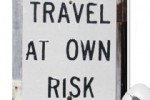
Hello Patricia,
Thank you for a superb article on travel safety that everyone needs to internalize to enjoy their vacation without worrying about disease, terrorism or other factors that can diminish the experience.
Best Regards,
Kenn